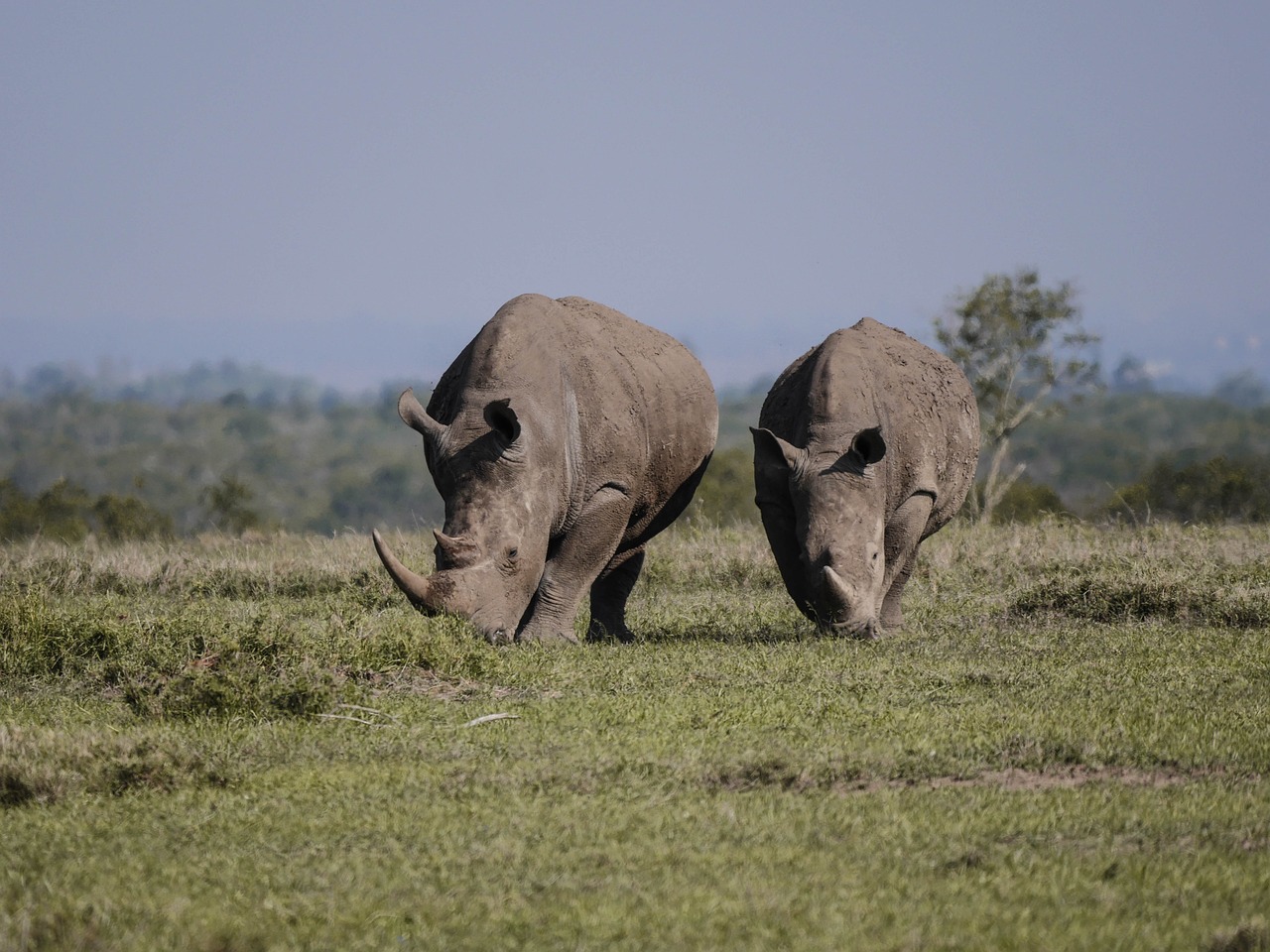Packing Essentials: Preparing for Half a Year in Kenya
Kenya, located in East Africa, is a country known for its diverse landscapes, rich culture, and abundant wildlife. If you’re planning to spend half a year in Kenya, it’s important to pack smart and be prepared for the unique experiences and challenges that await you. This article will guide you through the essential items you should consider packing for your extended stay in Kenya.
Section 1: Clothing
When it comes to clothing, it’s important to consider the climate and cultural norms in Kenya. Here are some essential items to pack:
- Lightweight and breathable clothing: Kenya has a warm climate, so pack lightweight and breathable clothing made from natural fabrics like cotton or linen.
- Modest attire: Respect the local culture by packing modest clothing, especially when visiting religious sites or rural areas.
- Long-sleeved shirts and pants: These will protect you from the sun and insects, particularly in rural areas and during safari trips.
- Swimwear: If you plan to visit Kenya’s stunning beaches or stay at hotels with swimming pools, don’t forget to pack swimwear.
- Comfortable walking shoes: Kenya offers plenty of opportunities for walking and hiking, so pack comfortable shoes.
Section 2: Health and Hygiene
Maintaining good health and hygiene is crucial during your stay in Kenya. Here are some essential health and hygiene items to pack:
- Prescription medications: If you take any prescription medications, ensure you have an ample supply for the duration of your stay.
- Insect repellent: Protect yourself from mosquito-borne diseases like malaria by packing an effective insect repellent.
- Sunscreen: Kenya’s sun can be intense, so pack a high SPF sunscreen to protect your skin.
- First aid kit: Include basic first aid supplies like band-aids, antiseptic cream, and any personal medications.
- Hand sanitizer: Keep your hands clean and germ-free, especially when access to water and soap is limited.
Section 3: Electronics
In today’s digital age, electronics play a vital role in our lives. Here are some essential electronics to pack for your extended stay in Kenya:
- Universal power adapter: Kenya uses Type G power outlets, so ensure you have a universal power adapter to charge your devices.
- Portable charger: Keep your devices charged, especially during outdoor activities or when you’re on the go.
- Camera and accessories: Kenya’s natural beauty and wildlife provide great opportunities for photography, so pack a camera and necessary accessories.
- Smartphone: Stay connected with family and friends, navigate unfamiliar areas, and access useful apps with a smartphone.
- Headphones: Whether you want to listen to music during long journeys or watch movies on your device, a pair of headphones is essential.
Kenya Image 1:

Section 4: Travel Essentials
When traveling to Kenya for an extended period, there are some additional items that can enhance your experience and make your journey more comfortable. Consider packing the following travel essentials:
- Travel adapter: A travel adapter will allow you to charge your devices and use electrical appliances from different countries.
- Travel pillow and blanket: Make long journeys more comfortable with a travel pillow and blanket for restful sleep.
- Reusable water bottle: Stay hydrated and reduce plastic waste by carrying a reusable water bottle.
- Travel insurance: Protect yourself against unforeseen circumstances by purchasing comprehensive travel insurance.
- Travel documents: Carry copies of your passport, visa, travel insurance, and other important documents in case of emergencies.
Section 5: Safari Gear
A trip to Kenya wouldn’t be complete without experiencing its incredible wildlife on a safari. Here are some essential items to pack for your safari adventure:
- Binoculars: Spot wildlife from a distance and get a closer look with a good pair of binoculars.
- Hat and sunglasses: Protect yourself from the sun’s rays during game drives with a wide-brimmed hat and sunglasses.
- Neutral-colored clothing: Blend into the natural surroundings and avoid attracting insects by packing neutral-colored clothing.
- Camera with zoom lens: Capture stunning wildlife photographs with a camera equipped with a zoom lens.
- Comfortable backpack: Carry your essentials, such as water, snacks, and sunscreen, in a comfortable and lightweight backpack.
Kenya Image 2:

Section 6: Cultural Etiquette
Respecting the local culture and customs is essential when visiting Kenya. Familiarize yourself with the following cultural etiquette tips:
- Greetings: Greet people with a handshake and use titles like “Mr.” or “Mrs.” followed by the person’s last name.
- Dress modestly: When visiting communities or religious sites, dress modestly to show respect.
- Photography: Always ask for permission before taking someone’s photo, especially in rural areas or local markets.
- Food etiquette: When invited to someone’s home, it’s customary to bring a small gift or contribute to the meal.
- Respect wildlife: When on safari, follow the instructions of your guide and maintain a safe distance from the animals.
Section 7: Money and Currency
Understanding the local currency and having access to money is important during your stay in Kenya. Here are some tips:
- Kenyan Shilling (KES): Familiarize yourself with the local currency and exchange rates before your trip.
- ATMs and credit cards: ATMs are widely available in major cities, and credit cards are accepted in many establishments. However, it’s always good to carry some cash for smaller businesses and rural areas.
- Notify your bank: Inform your bank about your travel plans to avoid any issues with your cards being blocked for suspicious activity.
- Currency exchange: Exchange currency at authorized bureaus or banks to ensure you receive fair rates.
- Pack a money belt: Keep your money and important documents safe by wearing a discreet money belt.
Section 8: Local Transportation
Getting around in Kenya can be an adventure in itself. Here are some transportation options to consider:
- Matatus: These minibusses are the most popular mode of transport within cities and towns. They can be crowded, but they offer an authentic local experience.
- Taxis: Taxis are widely available in major cities, and they can be hailed on the street or booked through ride-hailing apps.
- Boda-bodas: These motorcycle taxis are a common sight in Kenya. They are convenient for short distances, but make sure to negotiate the fare beforehand.
- Car rental: If you prefer more independence, consider renting a car. Ensure you have an international driving permit and familiarize yourself with local driving regulations.
- Public buses: Public buses connect major cities and towns, offering a more affordable option for long-distance travel.
Kenya Image 3:

Section 9: Communication
Staying connected with loved ones and accessing information is vital during your stay in Kenya. Here’s how you can stay connected:
- Local SIM card: Purchase a local SIM card to have access to affordable data and make local calls.
- Wi-Fi: Many hotels, cafes, and restaurants offer free Wi-Fi, allowing you to stay connected without a local SIM card.
- Messaging apps: Use messaging apps like WhatsApp or Skype to communicate with family and friends back home.
- Language: English and Swahili are widely spoken in Kenya, but learning a few basic Swahili phrases can be helpful.
- Emergency numbers: Save important emergency numbers, including the local police and embassy, on your phone.
Section 10: Safety and Security
While Kenya is a relatively safe country for travelers, it’s essential to take precautions to ensure your safety. Consider the following tips:
- Stay informed: Stay updated on the current situation in Kenya by monitoring local news and following travel advisories.
- Blend in: Avoid wearing flashy jewelry or displaying expensive gadgets to minimize the risk of theft.
- Be cautious at night: Avoid walking alone at night, especially in unfamiliar areas. Use reliable transportation or stick to well-lit and busy areas.
- Keep valuables secure: Use hotel safes to store your passport, extra cash, and other valuable items.
- Trust your instincts: If a situation or place feels unsafe, trust your instincts and take necessary precautions.
Section 11: Cultural Highlights
Kenya is a country rich in cultural heritage and offers numerous attractions to explore. Here are some cultural highlights to add to your itinerary:
- Maasai Mara National Reserve: Experience the vibrant Maasai culture and witness the Great Wildebeest Migration.
- Lamu Old Town: Explore the narrow streets of this UNESCO World Heritage Site and immerse yourself in Swahili culture.
- Karen Blixen Museum: Visit the former home of the famous Danish author and learn about her life in Kenya.
- Giraffe Centre: Get up close and personal with giraffes and learn about conservation efforts in Kenya.
- Kisumu Impala Sanctuary: Discover the diverse wildlife and bird species in this sanctuary located on the shores of Lake Victoria.
Section 12: Conclusion
Preparing for an extended stay in Kenya requires careful planning and packing. By considering the climate, cultural norms, and the activities you’ll be undertaking, you can ensure a comfortable and enjoyable experience. Remember to pack essential items like appropriate clothing, health and hygiene products, electronics, and travel essentials. Respect the local culture, stay informed about safety, and make the most of your time exploring Kenya’s incredible landscapes, wildlife, and vibrant culture.
References
– Lonely Planet: www.lonelyplanet.com
– Kenya Tourism Board: www.magicalkenya.com
– Travel Advisories: travel.state.gov
– Centers for Disease Control and Prevention: www.cdc.gov

